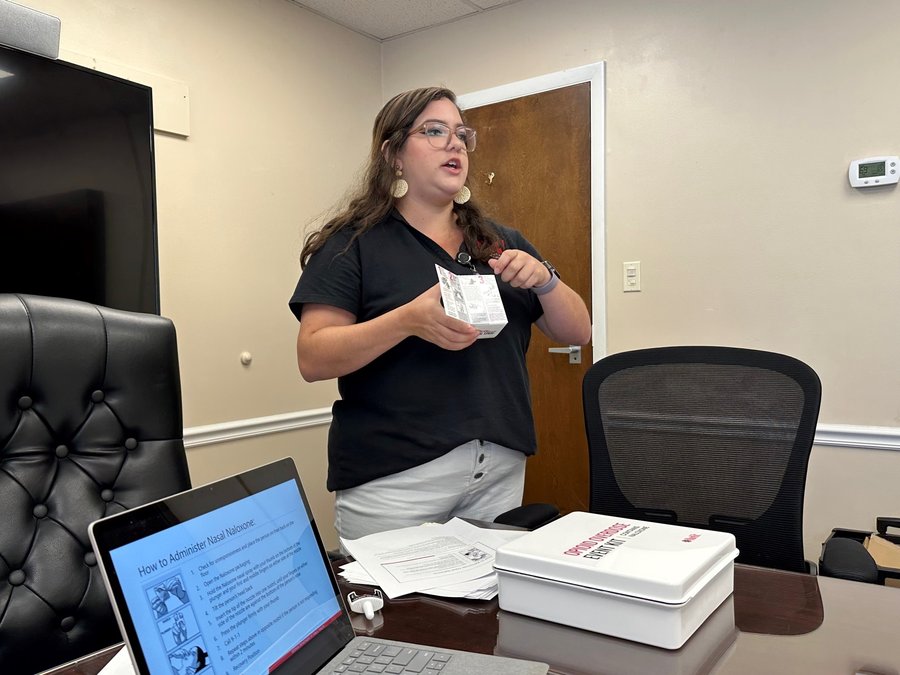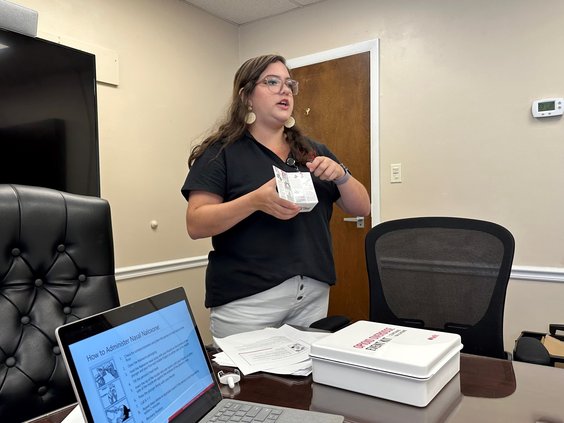Special to the Herald
SPRINGFIELD – The Coastal Health District is arming select employees with an important weapon in the fight against opioid overdoses.
Effingham County Health Department environmental health workers received naxolone and training on how to administer it Wednesday in case they encounter a suspected overdose victim. The likelihood of doing so is increasing.
According to the Georgia Department of Public Health, 93 Effingham County residents had an emergency department visit related to an opioid overdose in 2020 and 2021. Twenty-three of them died.
“Your environmental health workers are not typically health care providers but, because they are out in the community at hotels, bars and restaurants -- anywhere where you might come across somebody who has had an overdose -- we are trying to make sure they have this on hand so that they can protect the public’s health,” said Ginger Heidel, Coastal Health District public information officer.
The 2022 data has not yet been released to the public but preliminary reports show that opioid misuse and death rates are rising. Opioids, often prescribed to treat moderate to severe pain, can be highly addictive.

Environmental health workers, also known as public health inspectors, in Bryan, Camden, Chatham, Glynn, Liberty, Long and McIntosh counties are also receiving naxolone (Narcan) kits. The kits include four (4 mg) doses of naxolone nasal spray, a CPR respirator mask and gloves with a fentanyl barrier.
Naloxone works by blocking the effects of opioids on the brain and by restoring breathing. It will only work if a person has opioids in their system. It isn't harmful to them if they don't.
“I even been to some of the hotels in the area to equip them as well,” Coastal Health District Opioid Analyst Jessica Simon said.
According to the CDC, opioids were involved in the deaths of more than 68,000 people in the U.S. in 2020. Eighty-two percent of them involved synthetic opioids like fentanyl that are made in a laboratory and can be added to other drugs, sometimes without the drug user’s knowledge.
Simon, who led the training, said fentanyl is 50-100 times more powerful than morphine. It is cheaper and easier to make than heroin, she added.
The total number of opioid-related overdose deaths in Georgia increased from 853 to 1,718, an increase of 101 percent, from 2019-2021. These increases were driven largely by fentanyl.
From 2019-2021, fentanyl-related drug overdose deaths in the state increased 124 percent, from 614 to 1,379. In 2021, there were 2,390 drug overdose deaths. Seventy-one percent were attributed to opioids and 57 percent to fentanyl.
“Most recent cases of fentanyl-related overdoses that we see in Georgia or in our area are linked to illegally made fentanyl,” Simon said. “It is not being prescribed by a physician or doctor.”
High-risk individuals can access free naloxone at https://georgiaoverdoseprevention.org/ .





